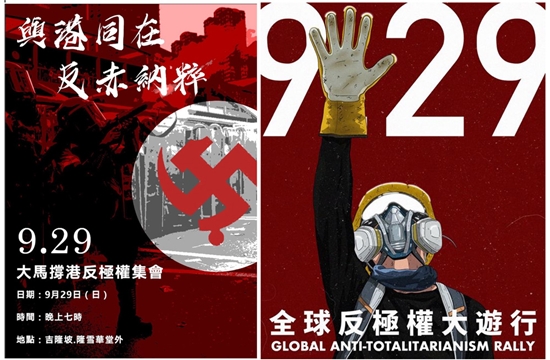
The Chinese government never intended to respect the “one country, two systems” setup, a “constitutional principle” that Chinese Communist Party officials still invoke as if the discarded formula were sacred and inviolable.
Without consulting the residents of Hong Kong, the British government in the 1980s prepared to deliver and in 1997 did deliver the city to China. China immediately began working, had already been working, to fully and finally destroy the political rights and liberties of Hongkongers. Anyone who knew the Chinese government knew this; many who did know, including the last British governor of Hong Kong, pretended not to know and professed a glowing optimism about Hong Kong’s political future.
Article 23
In 1990, China enacted a Basic Law for Hong Kong that would take effect when China took over in 1997.
A section of this law, Article 23, requires Hong Kong to “enact laws on its own to prohibit any act of treason, secession, sedition, subversion against the Central People’s Government, or theft of state secrets, to prohibit foreign political organizations or bodies from conducting political activities in the Region, and to prohibit political organizations or bodies of the Region from establishing ties with foreign political organizations or bodies.” The ground for the mainland-imposed National Security Law of 2020 and for the new National Security Law of 2024, the one nominally originating within Hong Kong, was thus laid years before the handover ceremony.
The Chinese state has often construed any but the mildest and most carefully tweezed criticisms of its actions as treasonous, seditious, subversive. Collusion with foreign states and secessionist sentiment are also very easy for CCP officials to detect or imagine.
Ching Cheong writes (“Why the new security law is a sword of Damocles over Hong Kong,” Radio Free Asia, February 24, 2024):
Article 23 isn’t mentioned at all in the 1984 Sino-British Joint Declaration [governing the 1997 handover].
Yet [it provides that] if the government fails to legislate against “rebellion” effectively enough, Beijing can invoke Article 17 of the Basic Law and impose direct, mainland-style governance in Hong Kong. This is in violation of the promise in the Sino-British Joint Declaration that Hong Kong would enjoy a “high degree of autonomy” after the handover….
The Basic Law drafting committee pushed back against Article 23, insisting on a clearer definition of the crimes under the law, and calling for Article 23 not to apply to areas where people exercise their freedoms of speech, assembly, protest and petition…..
The government’s attempt to strong-arm the legislation meant that 500,000 people took to the streets on July 1, 2003 to protest the law, prompting even the pro-Beijing Liberal Party to withdraw its support for the bill in the Legislative Council.
More important than the good and bad elements of the terms of the takeover agreement or of the laws that Hong Kong inherited from the days of British governance—although knowledge of all this is necessary to grasp what happened—were the determination of the Chinese government to crush Hong Kong and the determination of Hongkongers to resist. The CCP wanted to accomplish the crushing without actually invading Hong Kong, a land that had already been freely surrendered to it. It was willing to wait, strategize, suffer setbacks, try again.
Hong Kong’s resistance could not be broken in 2003, 2012, 2014, or 2019. It was broken in 2020 with the help of the COVID-19 pandemic that the Chinese government itself, advertently or inadvertently, had loosed on the world.
Also see:
Council on Foreign Relations: “Hong Kong’s Freedoms: What China Promised and How It’s Cracking Down”
South China Morning Post: “History of Hong Kong protests”
StopTheChinazis.org: “Walking with the HK Heroes Who Woke Up the World”
“Those Hong Kong protesters stay with me…. Against the brutal and powerful CCP, they knew they stood little chance to prevail. But they refused to go down without speaking out, standing up and fighting back against the death of their freedom.”





